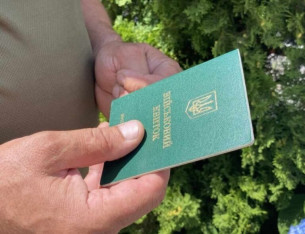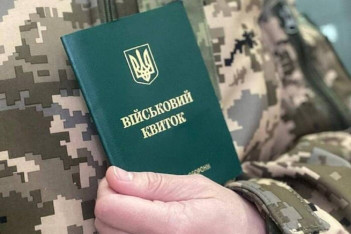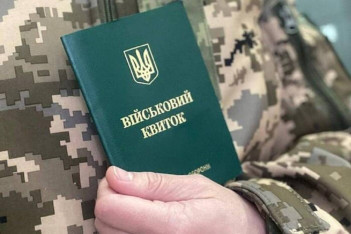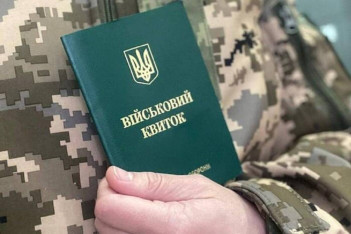Postponement of heads of ministries and their deputies
Deferral for heads of ministries and their deputies is an important legal instrument that allows ensuring the proper performance of official duties in the event of unforeseen circumstances or other justified reasons. This is a process that has a clearly defined legislative framework and requires a detailed analysis of the specific situation. Legal assistance in such a case is necessary to comply with all procedural requirements and ensure the successful consideration of the request for deferral.
Legal stages of deferment of heads of ministries and their deputies
To obtain a reprieve, the commander or his deputy must contact a lawyer who specializes in military law. The legal procedure usually includes the following stages:
- Legal consultation on the postponement of heads of ministries and their deputies. Analysis of legal grounds: the lawyer examines regulatory documents that regulate mobilization and identifies possible grounds for postponement, based on the client's position.
- Collection of necessary documents: A lawyer for the postponement of heads of ministries and their deputies helps to collect a package of documents necessary for submitting an application for postponement, in particular job characteristics, confirmation of the position held, etc.
- Preparation and submission of an application: a lawyer prepares an application to the military commissariat or other competent authority, taking into account all the necessary legal aspects.
- Legal support: if necessary, lawyers from the postponement of heads of ministries and their deputies represent the client's interests in court or before other authorities.
Each of these stages requires highly qualified legal assistance to ensure the legality and timeliness of the application.
Under what conditions can the service of issuing a deferment be provided to heads of ministries and their deputies?
Legal assistance for postponement of heads of ministries and their deputies can be provided in the following cases:
- Legislative grounds: if the legislation of Ukraine provides for the possibility of deferment for persons holding positions in state authorities.
- The official performs critically important functions: The postponement of heads of ministries and their deputies in Ukraine may be granted if the performance of official duties is critically important for the functioning of state bodies.
- Availability of documents confirming the right to postponement: if the client can provide all necessary documents confirming his right to postponement.
All these conditions are necessary for the correct execution of the deferral and ensuring its legality.
Under what conditions can the service of obtaining a deferment be provided to heads of ministries and their deputies?

Lack of legal grounds: if there are no norms in the legislation of Ukraine that allow the granting of a deferral for this category of persons.

Lack of supporting documents: if the client cannot provide documents confirming his position or the need for a postponement.

Conflict of interests: if there is a conflict of interests between the personal rights of the client and the interests of the state in the conditions of martial law.
How can a head of ministry or his deputy independently obtain a deferment?
The deferral process for heads of ministries and their deputies can be completed independently, for this it is necessary:
- Study the legislation: familiarize yourself with the Law of Ukraine "On Mobilization Training and Mobilization" and other normative legal acts.
- Consultation with a lawyer: although it is possible to study the legislation independently, consultation with a lawyer will help to avoid possible errors in the interpretation of legal norms.
- Preparation of documents: collect and prepare all the necessary documents yourself, taking into account the specifics of your position.
An independent process is possible, but due to the complexity of the procedure, it is recommended to involve specialists in order to ensure compliance with all legal requirements as effectively as possible.
Common questions about deferment of a head of ministry or his deputy
Question
What documents are required for the postponement of heads of ministries and their deputies?
Answer
In order to receive a postponement from conscription for military service, it is necessary to submit a certain package of documents for heads of ministries and their deputies. First, an official letter from the relevant ministry requesting a deferment is required. Secondly, a copy of the order appointing a person to the position of manager or deputy is attached. A certificate from the place of work confirming the position is also required. In addition, it is mandatory to submit a copy of the passport and personal identification code.
Question
How to find a lawyer for the postponement of heads of ministries and their deputies?
Answer
The search for a lawyer who specializes in the postponement of heads of ministries and their deputies can be started with the recommendations of colleagues or acquaintances who have experience in this field . Visit law firms that have relevant practices in government or administrative law and ask about specialists in these areas. Pay attention to advertisements in professional legal publications or online platforms where lawyers offer their services.
Question
How much does a legal consultation on the postponement of heads of ministries and their deputies cost?
Answer
The cost of legal advice on postponement issues for heads of ministries and their deputies depends on several factors. The main ones are the complexity of the issue, the duration of the consultation, the qualification of the lawyer and the reputation of the law firm. Some law firms offer a flat fee for the entire consultation. It is also worth considering additional costs, such as document analysis or court support, which can increase the total cost of services.
Cost of the service of issuing a deferment for heads of ministries and their deputies
The price of the service for obtaining a deferral for heads of ministries and their deputies may depend on several factors. Among them are the complexity and scope of the case, urgency, the need to involve additional experts, as well as the level of qualification and experience of the lawyer. An important aspect is also the number of stages that require legal support. The regional aspect, the reputation of the law firm and other factors can also affect the cost of services.
ConclusionObtaining a postponement for heads of ministries and their deputies is a complex legal process that requires a thorough study of legislative norms, assessment of the circumstances of the case and correct execution of documents. The importance of legal assistance in such cases cannot be overestimated, because the use of professional legal support makes it possible to effectively resolve the issue of a postponement, while maintaining legality and compliance with all requirements of the process.








































